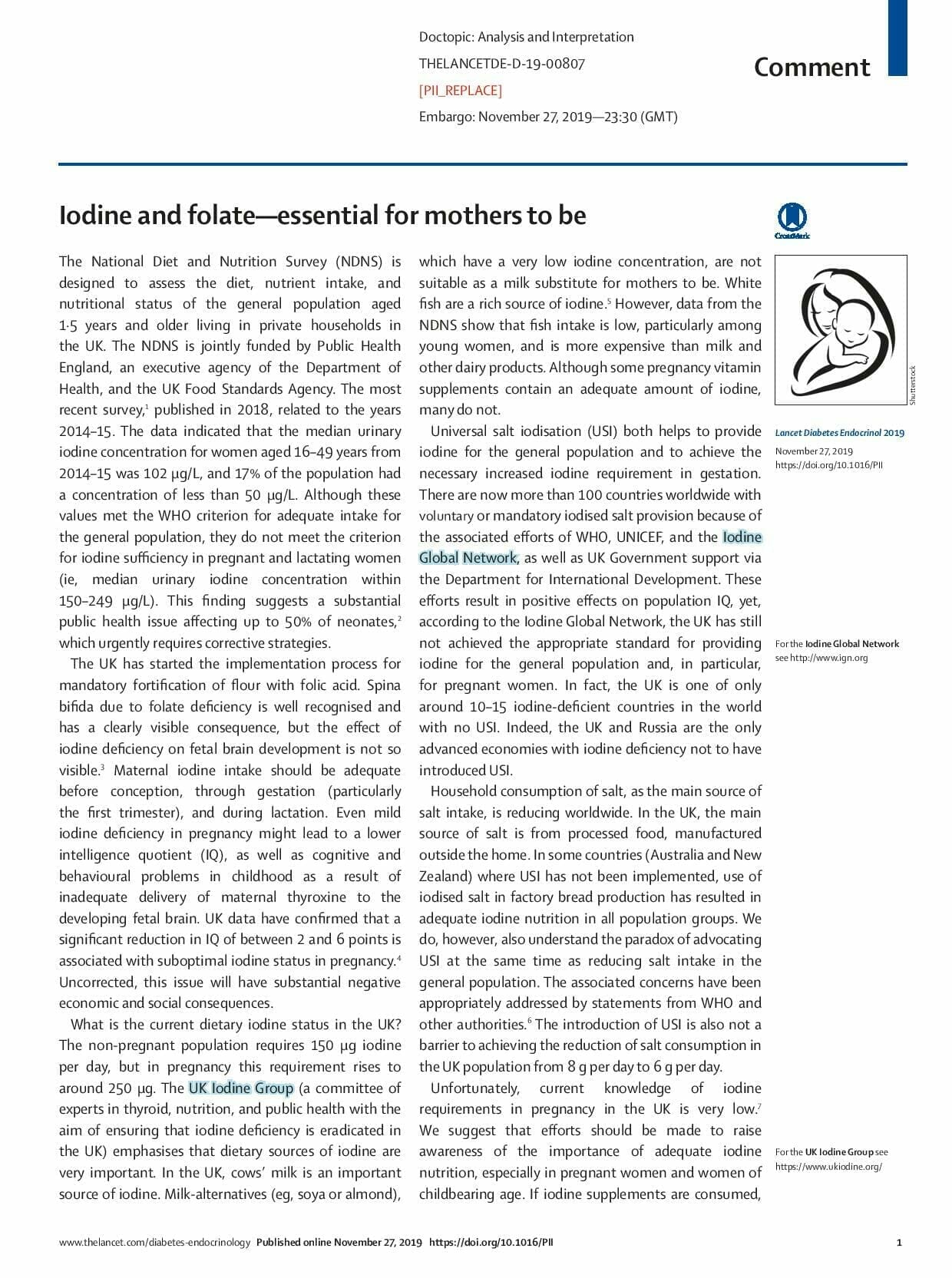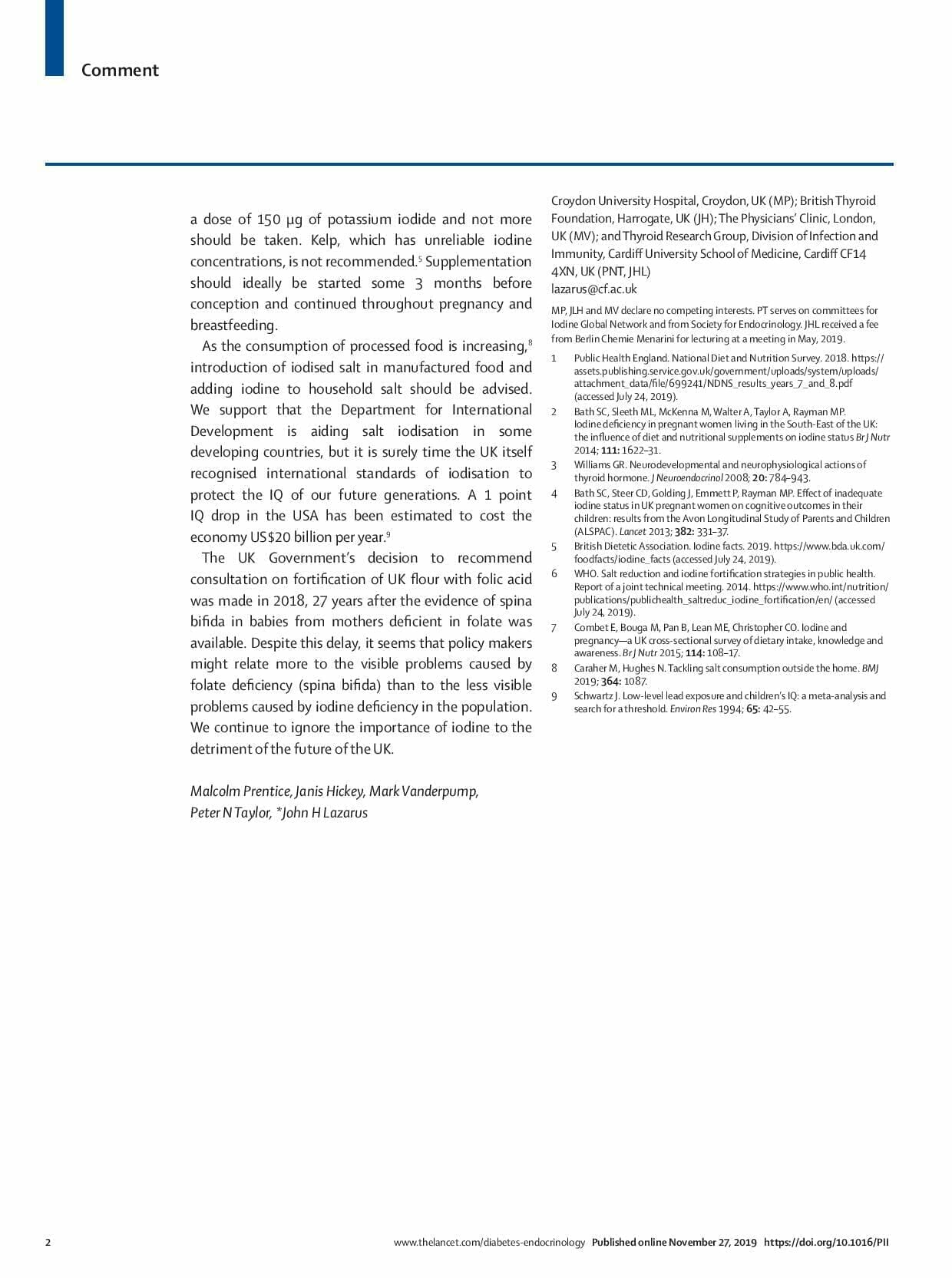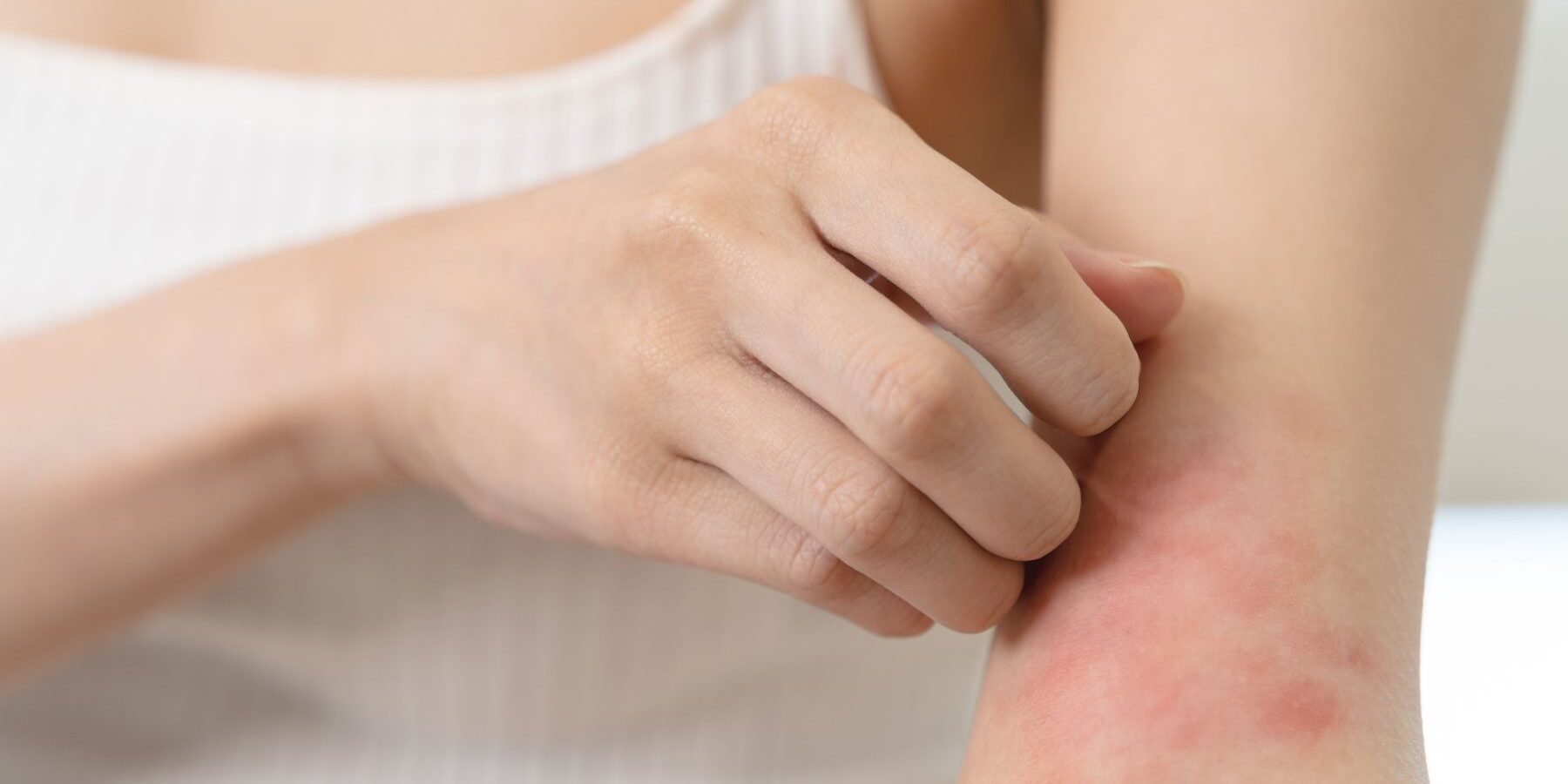Iodine and Folate – essential for mothers-to-be
London Medical’s very own Dr Malcolm Prentice has co-authored a paper published in Lancet Endocrinology and Diabetes
This paper highlights the new finding by Public Health England (PHE) that, while women of childbearing age in the UK are marginally iodine sufficient, iodine status is insufficient for pregnancy and does not meet the recommendations of the World Health Organization (WHO), UNICEF and the Iodine Global Network. The latest report from the National Diet and Nutrition survey states ‘While these values met the WHO criterion for adequate intake for the general population, they do not meet the criterion for iodine sufficiency in pregnant and lactating women (ie median urinary iodine concentration within 150-249 µg/L).’ This means that there is insufficient iodine in the population of pregnant women. This iodine insufficiency is likely to have permanent adverse effects on fetal brain development, as described in the paper.
It is to be hoped that PHE will react positively to this new finding by recommending appropriate measures to ensure optimal iodine intake during gestation. A common approach is to enhance dietary intake. Although it is possible to achieve iodine sufficiency through intake of cows’ milk, dairy products and fish, for a range of reasons, not all women consume these foods. PHE should therefore recommend that women who are not frequent consumers of these foods should take a daily supplement containing 150 micrograms of iodine (as potassium iodide and not as a kelp supplement which can lead to excess intake), ideally to be started three months before conception and continued throughout the breastfeeding period.
Given the evidence that adequacy of iodine status in the preconception period is important for fetal development, PHE should consider how best to communicate this information to women planning pregnancy as well as emphasising the importance of adequate iodine nutrition in the early years.
Going forward it is to be hoped that PHE will consider:
- the necessity of revising government recommendations on iodine consumption especially in pregnancy
- the importance of achieving adequate iodine nutrition by dietary means
- the place of iodine supplementation especially in pre-pregnancy, pregnancy and breastfeeding
- the role of iodised salt provision in UK.


Search treatments & services A-Z
Search for a specific treatment or service.


